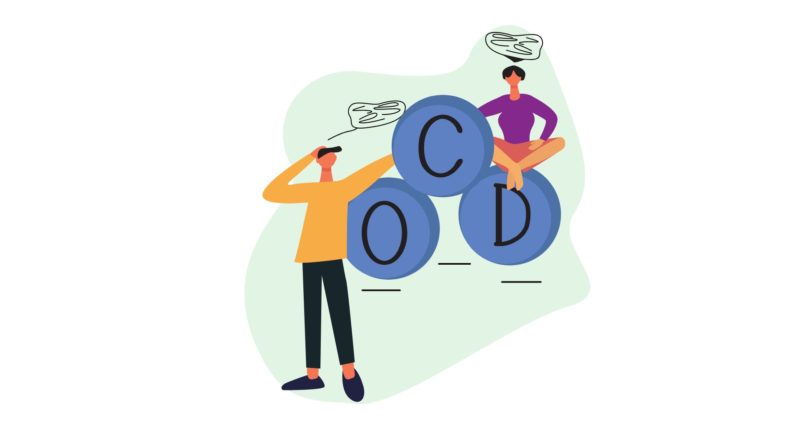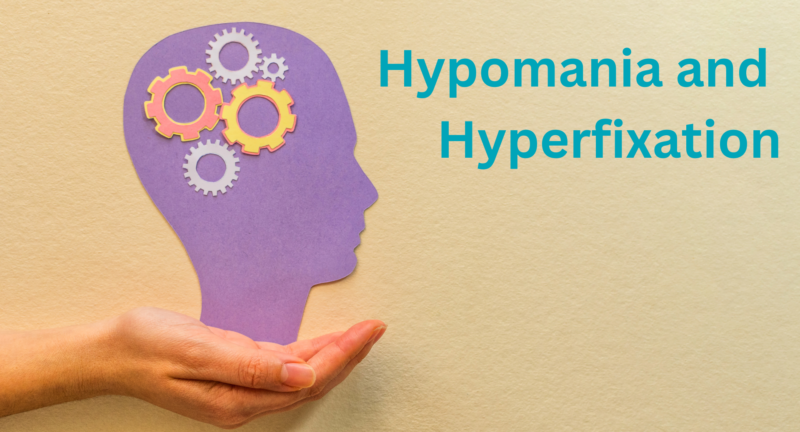
OCD During the Pandemic: What You Need to Know
Mental health experts from the Centers for Disease Control and Prevention are noting “historic rises” in anxiety and depression cases, but anxiety and depression aren’t the only two mental health conditions impacted by the pandemic. Individuals with OCD may be particularly triggered. One of the more prominent obsessions associated with obsessive-compulsive disorder (OCD) is the fear of germs and contamination, and with the increased talk and demands for increased hygiene, it’s no surprise. If you find that your symptoms of OCD are worsening, you’re not alone. Research published in a June 2020 study noted that the intensity of OCD symptoms grew during (and after) the quarantine, and relapse symptoms also intensified.
If you have OCD, now is a good time to check in with yourself to ensure your symptoms are fully managed. In the meantime, this is what you need to know about the pandemic and OCD.
Debunking the OCD Myth
OCD is one of the anxiety disorders. OCD is characterized by recurring, unwanted thoughts, ideas, or sensations (obsessions) that make them feel driven to do something repetitively (compulsions). Unfortunately, there are a lot of myths about OCD, including the idea that OCD is just about washing your hands, but the reality is that OCD is a real disorder that can profoundly impact your life if it’s left untreated. Washing hands is just one example of a compulsion. Other examples of compulsions include frequently checking on things, ruminations, or other ritual behaviors.
OCD can affect anyone, including children, teens, and adults. According to the International OCD Foundation, 2-3 million adults and about 500,000 children currently have OCD.

Warning Signs that Your OCD Is Spiraling Out of Control
How do you know if your OCD is being affected by the pandemic? Dr. Briscoe shares four signs that should be aware of:
Are you:
- Obsessing or ruminating over thoughts or images that pop into your mind and feel unable to let go?
- Spending excessive amounts of time engaged in OCD rituals (repetitive behaviors) or checking behaviors?
- Feeling like you are losing control of your thoughts, feelings, or behaviors?
- Feeling like OCD is interfering with your life or things you have previously enjoyed?
5 Ways to Support Your Partner with OCD
If you’re spouse or partner is struggling with OCD during the pandemic, you might wonder how you can best support him or her. Below are five tips to support and encourage your partner.
1. Offer encouragement.
Offer encouragement and support, but learn about the right kind of encouragement to offer that neither accommodates (i.e., enables) the rituals nor criticizes the partner for their irrational thinking or behaviors. You may benefit from support groups or from talking to your spouse’s therapist — we’ll cover this more in the next tip.
2. Encourage professional support.
“Ensure that your partner is receiving the right kind of professional support. Standard “talk therapy” is typically insufficient and ineffective in treating OCD. Evidence-based approaches generally support a combination of medication and a very specialized form of Cognitive Behavioral Therapy,” Dr. Briscoe reminds us.
Consider this: Setup an appointment to visit with your partner’s specialized OCD therapist to discuss how you can support the work that your partner and therapist are engaged in. Therapists providing CBT with persons with OCD are generally very happy to involve loved ones in their clients’ care, and provide some very helpful recommendations for you to assist and support the process of healing.
A board-certified psychiatrist should be able to recommend and direct you to a therapist or psychologist in your local community with experience and expertise in treating OCD, and provide medication to help alleviate symptoms if necessary.
3. Seek out a support group for yourself.
You might also consider finding a support group dedicated to spouses of individuals with OCD. You can find support groups for spouses of individuals with OCD on the International OCD Foundation website.
4. Seek to learn everything you possibly can about OCD.
Here are a few reputable resources:
- National Alliance on Mental Health – Provides some excellent recommendations for family members/partners of persons struggling with OCD. You can also learn what to do and what not to do.
- Harvard Health Publishing – General information/education on OCD.
- National Alliance on Mental Health (support) – Source of support for family members/partners of persons struggling with OCD and other mental illness. Potential resource for support groups for family members/partners.
What to Do If You Notice the Symptoms of OCD
The signs and symptoms of OCD vary depending on what your specific obsessions/compulsions are. For example, if a person has recurring thoughts about germs, compulsions could include frequent hand-washing, frequent cleaning and recleaning, and drive to keep everything orderly. For example, recurrent thoughts about injury could lead to frequent checking that the oven is off.
In general, symptoms include:
- Having unwanted, recurring thoughts
- Having disturbing thoughts
- Being unable to ignore repetitive compulsions
Note that the recurring thoughts don’t always have to be about germs. According to Mayo Clinic, OCD obsessions can have themes, like fear of contamination, unwanted sexual thoughts, or the need for symmetry.
If you notice any of these signs and are struggling to manage intrusive thoughts, it may be a good time to seek professional help.
Treatment Options for OCD During the Pandemic
Medications, such as SSRI’s (Lexapro, Zoloft, etc.) prescribed by a psychiatrist can help to alleviate many of the symptoms of OCD. Dr. Briscoe shares, “However, the Gold Standard of treatment for OCD is a highly specialized form of psychotherapy called Exposure and Response Prevention (ERP). For more information on ERP, visit this site.
Explore Your Next Steps
Intrusive thoughts or compulsions can impact your personal and professional life, but it doesn’t have to stay that way. Our skilled and compassionate providers can help you manage your OCD symptoms and regain control of your life. At NextStep 2 Mental Health, we know that the pandemic can profoundly impact your mental health. We provide comprehensive OCD treatment — pandemic or not. Whether you’ve already been diagnosed or you are just now starting to see the signs, we can help you feel better. Give us a call at our Louisville, Kentucky office at 502-339-2442, or send us a message to request more information.
You can also request an appointment with our convenient scheduling tool here.
About Dr. Briscoe
 Dr. Brian Briscoe is a board-certified psychiatrist and the medical director of adult programs. Dr. Briscoe was voted a “Top Doctor” by Louisville Magazine. You can make an appointment with Dr. Briscoe here .
Dr. Brian Briscoe is a board-certified psychiatrist and the medical director of adult programs. Dr. Briscoe was voted a “Top Doctor” by Louisville Magazine. You can make an appointment with Dr. Briscoe here .
Related Posts
7 Things Teens with OCD Need to Know
Obsessive-compulsive disorder, more commonly called OCD, is a chronic mental...
Hypomania and Hyperfixation: What’s the Difference?
Mental health conditions can manifest in various ways, and two related concepts...


